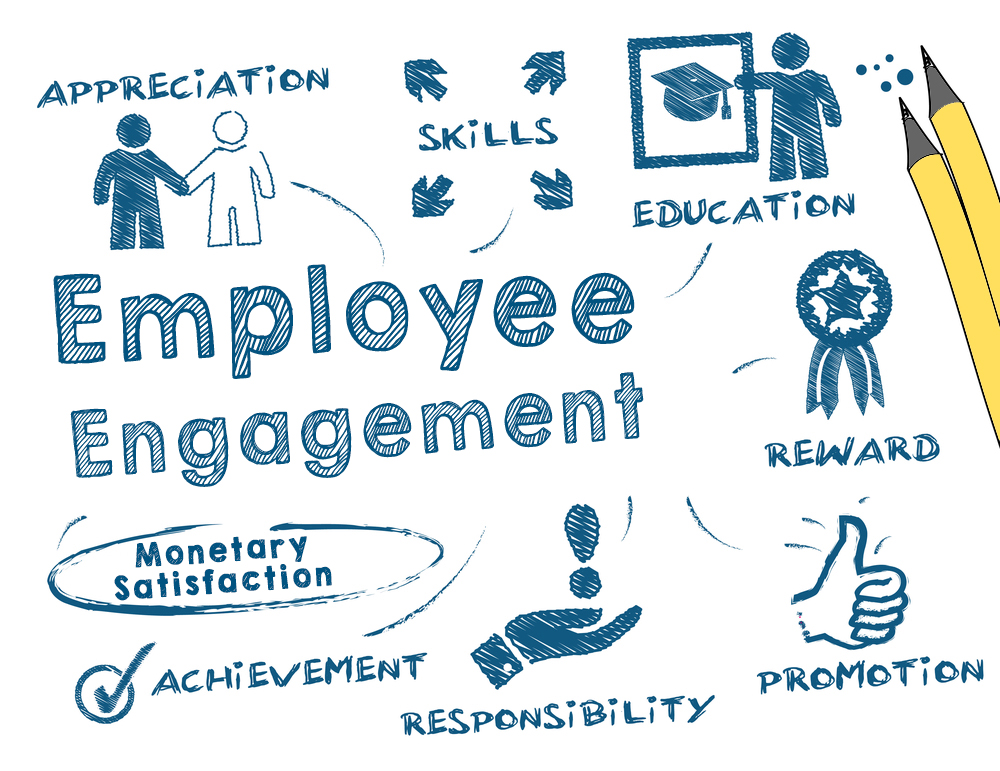Rethinking Middle Management: Their Critical Role In Company Performance And Employee Satisfaction

Table of Contents
The Evolving Role of Middle Management in Today's Business Environment
The traditional image of middle management – a rigid hierarchical structure with a focus on command and control – is becoming obsolete. The rise of flatter organizational structures, agile methodologies, and remote work has fundamentally altered the landscape. Today's successful middle managers are less about directing and more about mentoring and coaching. They are facilitators, collaborators, and champions of their teams.
This shift demands a new skillset:
- Increased emphasis on collaboration and communication: Effective communication across teams and departments is paramount, requiring strong interpersonal skills and the ability to navigate complex information flows.
- Greater accountability for team performance: Middle managers are no longer simply responsible for their own work; they are accountable for the overall success of their teams, requiring strong leadership and project management skills.
- Need for adaptability and agility in a rapidly changing business landscape: The ability to quickly adapt to new technologies, market trends, and evolving business strategies is crucial for success.
- Importance of fostering innovation and creativity within teams: Middle managers play a vital role in creating environments where team members feel empowered to contribute innovative ideas and solutions.
Middle Management's Impact on Company Performance: A Key Driver of Success
Effective middle management is not just a nice-to-have; it's a critical driver of company performance. They act as a crucial bridge between executive leadership and frontline employees, ensuring that strategic goals are effectively translated into actionable plans and that feedback flows seamlessly in both directions. This translates to tangible improvements in various areas:
- Improved communication and information flow: Efficient communication ensures everyone is aligned and working towards shared goals.
- Efficient resource allocation and project management: Middle managers oversee resource allocation, ensuring projects are completed on time and within budget.
- Enhanced employee engagement and motivation: Supportive middle managers foster a positive work environment, leading to increased employee engagement and productivity.
- Strategic implementation of company goals and initiatives: They translate high-level strategic goals into practical, achievable targets for their teams.
- Data-driven decision making and performance tracking: Using data to inform decisions and track progress allows for more efficient and effective management.
The Link Between Middle Management and Employee Satisfaction: Fostering a Positive Work Environment
The impact of middle management extends far beyond productivity metrics. They play a pivotal role in shaping workplace culture and fostering a positive work environment. This, in turn, directly influences employee satisfaction, motivation, and retention. Consider the following:
- Mentoring and coaching opportunities for team members: Providing guidance and support helps employees develop their skills and advance their careers.
- Recognition and appreciation of employee contributions: Acknowledging and rewarding good work boosts morale and reinforces positive behaviors.
- Creating a culture of open communication and feedback: A transparent and communicative environment ensures employees feel heard and valued.
- Promoting work-life balance and employee well-being: Supporting employee well-being leads to a more engaged and productive workforce.
- Addressing employee concerns and resolving conflicts effectively: Fair and timely resolution of conflicts contributes to a more harmonious work environment.
Strategies for Rethinking and Empowering Middle Management
Organizations need to actively invest in developing and empowering their middle management teams. This requires a strategic approach that includes:
- Invest in leadership training and development programs: Equip middle managers with the skills they need to thrive in their evolving roles.
- Provide clear roles, responsibilities, and expectations: Clarity reduces ambiguity and fosters accountability.
- Empower middle managers with decision-making authority: Delegating authority encourages autonomy and initiative.
- Foster a culture of trust and collaboration: A supportive environment encourages open communication and teamwork.
- Regularly assess and provide feedback on performance: Constructive feedback helps middle managers identify areas for improvement and grow professionally.
- Implement effective performance management systems: Fair and transparent performance management systems ensure that contributions are recognized and rewarded.
Rethinking Middle Management for Lasting Success
In conclusion, rethinking middle management is not just a trend; it's a necessity for organizational success. By recognizing their crucial role in driving both company performance and employee satisfaction, and by investing in their development and empowerment, organizations can unlock significant potential. The strategies outlined above offer a pathway to building a more effective and engaged middle management team. Rethink your approach to middle management today. Invest in empowering your middle management for lasting success. Discover how rethinking middle management can transform your organization.

Featured Posts
-
 50 000 Fine For Anthony Edwards Following Vulgar Exchange With Fan
Apr 29, 2025
50 000 Fine For Anthony Edwards Following Vulgar Exchange With Fan
Apr 29, 2025 -
 Land Your Dream Private Credit Job 5 Essential Tips
Apr 29, 2025
Land Your Dream Private Credit Job 5 Essential Tips
Apr 29, 2025 -
 Fox News Faces Defamation Lawsuit From Jan 6th Figure Ray Epps
Apr 29, 2025
Fox News Faces Defamation Lawsuit From Jan 6th Figure Ray Epps
Apr 29, 2025 -
 Exclusive University Group Challenges Trump Administration Policies
Apr 29, 2025
Exclusive University Group Challenges Trump Administration Policies
Apr 29, 2025 -
 The China Market Navigating Challenges For Bmw Porsche And Competitors
Apr 29, 2025
The China Market Navigating Challenges For Bmw Porsche And Competitors
Apr 29, 2025
Latest Posts
-
 Exclusive University Group Challenges Trump Administration Policies
Apr 29, 2025
Exclusive University Group Challenges Trump Administration Policies
Apr 29, 2025 -
 Prestigious Universities Form Private Collective To Resist Trumps Agenda
Apr 29, 2025
Prestigious Universities Form Private Collective To Resist Trumps Agenda
Apr 29, 2025 -
 Exclusive Ivy League Schools Create Secret Alliance Against Trump
Apr 29, 2025
Exclusive Ivy League Schools Create Secret Alliance Against Trump
Apr 29, 2025 -
 Top Universities Unite In Private Group To Challenge Trump Policies
Apr 29, 2025
Top Universities Unite In Private Group To Challenge Trump Policies
Apr 29, 2025 -
 Elite Universities Form Secret Coalition To Oppose Trump Administration
Apr 29, 2025
Elite Universities Form Secret Coalition To Oppose Trump Administration
Apr 29, 2025
